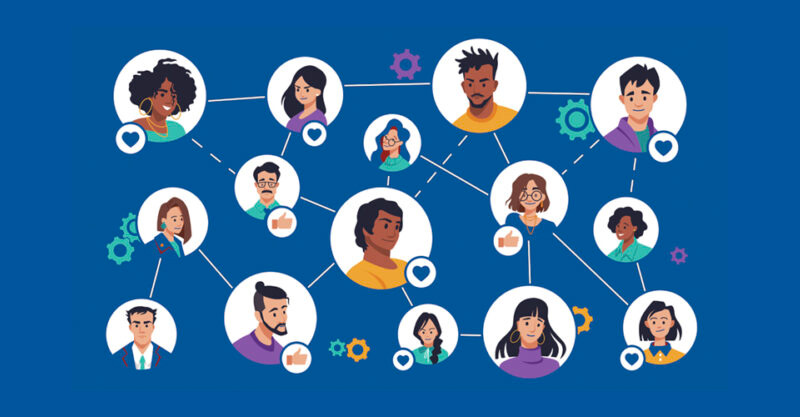There’s so much to know. When you suddenly find yourself caring for a loved one who sustains a spinal cord injury, your own needs can fall to the side. You’re trying to be there for them, to find the right information without knowing what you’re looking for or where to look. You may be managing new medical relationships, trying to keep the household running, to calm growing fears and pain, all the while keeping your own emotions in check.
There are a growing number of programs and tools for people with SCI, but what about their families? SCIO has been supporting family members for years through our Family Peer Mentors program but we knew they needed more.

“Back in 2019, we created a survey that tried to determine what family members needed from the organization,” shares Sheri Upper, one of SCIO’s Regional Services Coordinators (RSC). With a Master’s in Social Work and 25 years of working with people with disabilities, she initially worked at Lyndhurst with inpatients before joining the SCIO team in 2008. “Psycho-social support was mentioned. In my role at Lyndhurst, I had co-facilitated a similar group and they wanted to try and resurrect something for family members supporting loved ones with an SCI.”
The Bourassa Savaria Foundation saw the value in creating a program that would take the support of family members of people with SCI further. The foundation was created in 2014 and donates to Canadian not-for-profit organizations that support mobility-challenged families and individuals. They generously signed on to support the creation and delivery of Family Connections. “Giving back is one of the most important things I can do in life. I’m proud to grow the Foundation each year to do more” says Marcel Bourassa.
With funding in place, it was time to build the program. Gaya Jeyathevan, a Ph.D. candidate at Lyndhurst, had researched family support and acted as a consultant in the development of six modules. These modules were based on the initial research on how families could be best supported in caregiving roles and ongoing daily support. The modules covered topics such as coping with loss, relationship changes, managing stress and problem-solving. While created as an in-person program the pandemic made the move to a virtual program necessary with the added benefit of being able to connect families across the province.

Stephanie Bolton, RSC from Peterborough, joined Sheri in delivering the program and added to it by bringing in some support for the attendees’ physical well-being. For over 30 years she has helped individuals navigate community services to improve their quality of life. In addition, as a yoga instructor and healthy living coach, she knows the value of integrating care for the mind and body. Her expertise brought an additional module to the program through Yoga Nidra.
The goal of Family Connections is to help family members feel empowered to care for themselves and their loved ones and to be armed with the knowledge and tools they need to be successful in this. It is also an opportunity to connect with others and draw upon the power of shared experiences.
“The program is designed to ensure that everyone participates. We have a small group at a time, a maximum of 5-6 participants because we want to ensure everyone has a chance to speak and share,” she says. “Each week is like a stepping stone. Everyone has headphones to create a safe space and turn their camera on. This is a requirement so that there is a feeling of participation.”
Navigating the world after an SCI can no doubt be a challenge and loved ones are impacted as well, feeling the shock, grief and stress of adjusting to a new way of life. “Participating in the program helps show that they are not alone in their caregiving roles and connecting with others on similar paths is beneficial. We’ve had partners, mothers, daughters and fathers take part. The program permits them to go through their own journey of grief and loss.”
While family members are not always ready to participate in Family Connections right away, they will often join a later session. Each session consists of an eight-week program and participants are asked to commit to attending all the sessions at the onset.
“Finding support for family members is not as easy because we are very niche with SCI. We bring in SCI expertise and have frank discussions about depression that is reactive and clinical. We create a safe space and help link them with the supports they need. While it’s not meant to be a therapy group, it does have a therapeutic element to it,” says Sheri.
While many family members take on caregiver roles for their loved ones with SCI, the role itself can be siloed with not enough information on how it impacts the family unit and where supports can be accessed. Sheri states, “With Family Connections, there is an opportunity to be vulnerable and open the door to reconnect.”
SCIO Family Connections is made possible by the generous support of the



